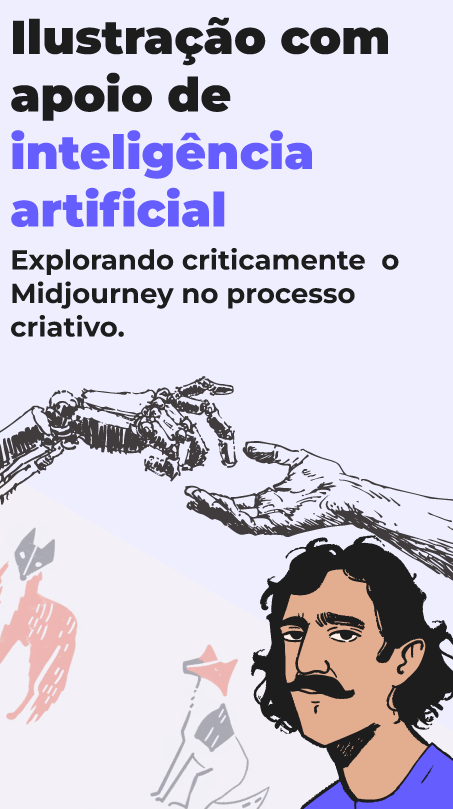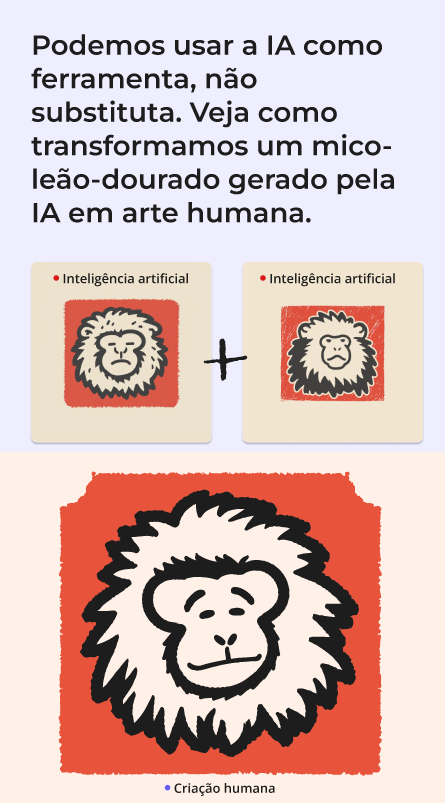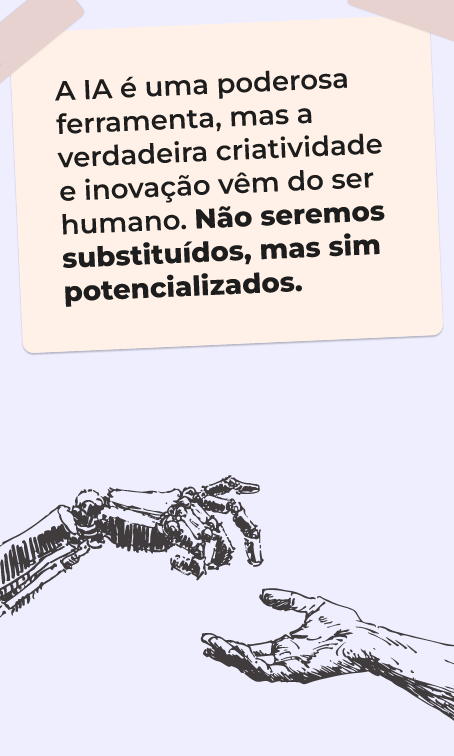Inteligência Artificial como ferramenta para o Design
Esta pesquisa explora a arte generativa, com foco no algoritmo Fidenza, criado por Tyler Hobbs em 2021, que utiliza a técnica de programação Flow Field para produzir peças com retângulos curvos e paletas de cores pastéis. O estudo investiga como a arte gerada por algoritmos e as NFTs (tokens não fungíveis) influenciam a percepção da arte digital no século XXI, à luz das perspectivas históricas e sociais.
A pesquisa faz referência a conceitos teóricos de Roland Barthes e Vilém Flusser sobre a representação e instrumentalização das imagens, e como essas ideias se relacionam com a arte generativa contemporânea. O projeto também examina a crítica de Walter Benjamin sobre a "aura" das obras de arte e considera se a arte generativa pode reverter a perda dessa aura. O objetivo é avaliar o papel da máquina na criação artística e se algoritmos, como o Fidenza, introduzem novas formas de autoria e vida nas obras de arte. A investigação teórica se baseará na análise crítica de bibliografia e obras de arte, buscando compreender as interações entre a criatividade humana e a tecnologia na arte digital.
This research explores generative art, focusing on the Fidenza algorithm, created by Tyler Hobbs in 2021, which uses the Flow Field programming technique to produce pieces with curved rectangles and pastel color palettes. The study investigates how art generated by algorithms and NFTs (non-fungible tokens) influence the perception of digital art in the 21st century, in the light of historical and social perspectives.
The research refers to theoretical concepts by Roland Barthes and Vilém Flusser on the representation and instrumentalization of images, and how these ideas relate to contemporary generative art. The project also examines Walter Benjamin's critique of the "aura" of works of art and considers whether generative art can reverse the loss of this aura. The aim is to evaluate the role of the machine in artistic creation and whether algorithms, such as Fidenza, introduce new forms of authorship and life into works of art. The theoretical investigation will be based on the critical analysis of bibliography and works of art, seeking to understand the interactions between human creativity and technology in digital art.
O trabalho aborda a ferramenta de inteligência artificial (IA) Midjourney, uma rede neural generativa que gera imagens a partir de descrições textuais, desenvolvida por um laboratório de pesquisa independente. Durante o treinamento, o modelo aprende a relacionar texto e imagem com feedback humano. A tecnologia levanta questões sobre autoria e o papel humano na criação. O avanço da IA torna seu funcionamento cada vez mais obscuro para a maioria das pessoas, apesar das iniciativas de código aberto. A busca pela aplicação de processos humanos para a máquina busca a mudança de papéis entre o homem e a máquina, levantando a a questão de quem é a ferramenta de quem.







